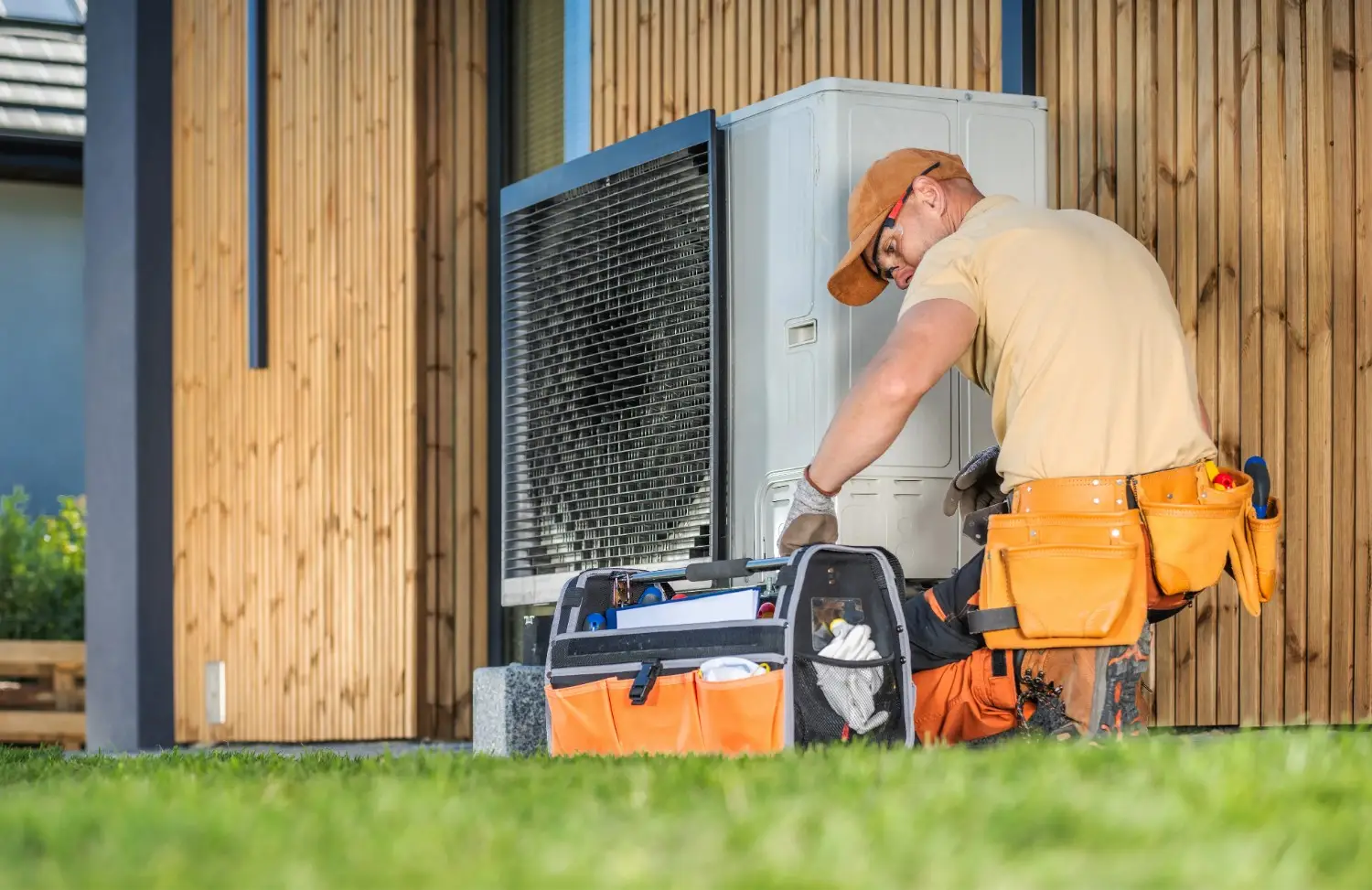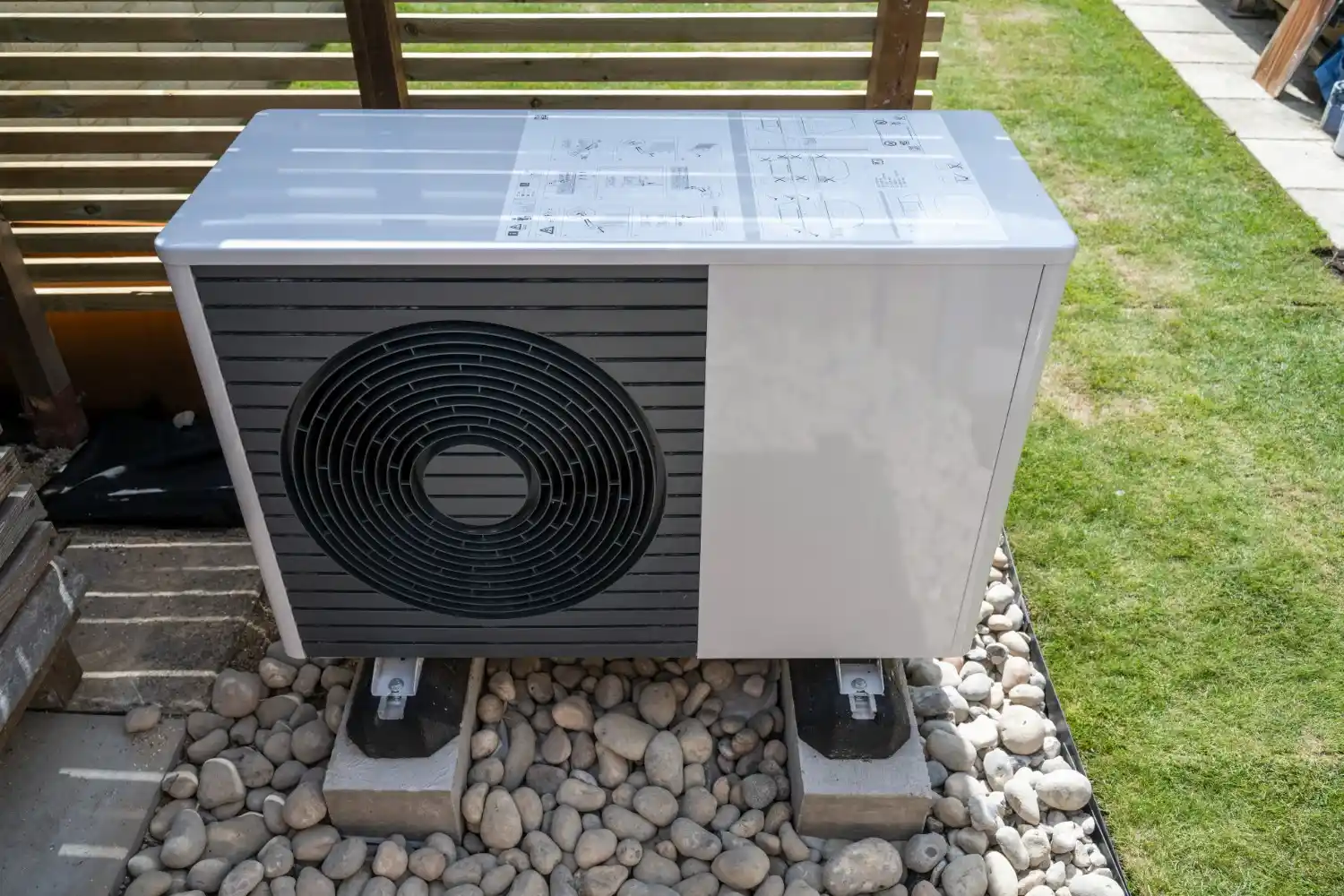Heat Pump Installation Services in St. Gabriel, LA
Efficient Heat Pump Installation St. Gabriel LA
Considering a new heating and cooling system for your home in St. Gabriel? Heat pumps offer a versatile and energy-efficient solution that is particularly well-suited to the climate conditions found throughout Louisiana. Unlike traditional systems that either burn fuel or only provide cooling, a heat pump provides both heating and cooling from a single unit, moving heat rather than generating it. This process allows heat pumps to deliver comfort efficiently year-round.
For residents in St. Gabriel, where winters are typically mild and summers are long, hot, and humid, the unique capabilities of a heat pump system can be highly beneficial. It provides reliable warmth during the cooler months and acts as a highly efficient air conditioner and dehumidifier when temperatures rise. Investing in professional heat pump installation ensures that your system is sized correctly, installed according to manufacturer specifications and local codes, and operates at peak efficiency for optimal comfort and energy savings.

Why a Heat Pump is Ideal for Your St. Gabriel Home
The subtropical climate of St. Gabriel presents specific challenges and opportunities for home comfort systems. Heat pumps are designed to excel in regions with moderate heating needs, making them a smart choice for many Louisiana homes.
Key Advantages
- Energy Efficiency: Heat pumps don't generate heat; they transfer it. In heating mode, they extract heat from the outside air (even when it feels cool) and transfer it inside. In cooling mode, they reverse the process, pulling heat from indoors and releasing it outside. This method uses significantly less energy than systems that convert fuel to heat, leading to lower utility bills, especially for heating in mild climates like ours.
- Dual Functionality: A single system handles both heating and cooling requirements. This eliminates the need for separate furnace and air conditioning units, potentially simplifying maintenance and space requirements.
- Improved Dehumidification: Modern heat pumps are very effective at removing humidity from the air during the cooling process. Given St. Gabriel's high humidity levels, this feature is crucial for enhancing indoor comfort and preventing potential moisture issues.
- Consistent Comfort: Heat pumps deliver consistent temperature control, avoiding the wide temperature swings sometimes associated with other systems. They provide gentle, even heating and cooling throughout your home.
- Environmental Benefits: By using electricity more efficiently and not burning fossil fuels on-site, heat pumps can have a lower environmental impact compared to traditional furnaces.

Understanding How Heat Pumps Work
At its core, a heat pump utilizes a refrigerant cycle, similar to a refrigerator or air conditioner, but with the ability to reverse the flow of refrigerant.
In Heating Mode
- Liquid refrigerant absorbs heat from the outdoor air as it passes through the outdoor coil (evaporator).
- The warmed refrigerant turns into a gas and is compressed, increasing its temperature and pressure.
- The hot refrigerant gas flows to the indoor coil (condenser), where it releases heat into the air circulating through your home's ductwork.
- As it releases heat, the refrigerant cools and condenses back into a liquid, and the cycle repeats.
In Cooling Mode
- The cycle reverses. The indoor coil becomes the evaporator, absorbing heat and humidity from the indoor air.
- The refrigerant carries this heat to the outdoor coil (condenser).
- Heat is released to the outdoor air, and the cooled refrigerant cycles back inside.
The Heat Pump Installation Process
Professional heat pump installation is a crucial step in ensuring the system performs optimally and provides long-term reliability. While the specifics may vary depending on the type of system (e.g., central ducted vs. ductless mini-split) and your home's unique layout, the general process involves several key stages:
Key Stages
- Initial Consultation & Sizing: An experienced technician will assess your home's heating and cooling needs. This involves considering factors like square footage, insulation levels, window types, local climate data, and the layout of your home.
- System Selection: Based on the load calculation, we will help you select the appropriate heat pump system, considering factors like efficiency ratings (SEER, HSPF), features, budget, and any specific comfort needs you have.
- Removal of Old Equipment: If you are replacing an existing system, the old furnace, air conditioner, or heat pump will be carefully disconnected and removed.
- Installation of New Components: The new outdoor unit (condenser) and indoor unit (air handler or furnace coil) are positioned and secured. Refrigerant lines, electrical wiring, and condensate drain lines are properly connected.
- Refrigerant Management: The refrigerant lines are evacuated to remove air and moisture, then charged with the correct type and amount of refrigerant.
- Electrical Connection & Testing: The system is wired to your home’s electrical supply and thermostat. Final testing ensures performance, refrigerant pressure, airflow, and thermostat response.
- Final Walkthrough & Explanation: The technician explains thermostat programming, basic maintenance like filter changes, and answers any remaining questions.
Types of Heat Pump Systems
While the underlying technology is similar, heat pumps come in different configurations to suit various homes and needs:
Common System Types
- Air-Source Heat Pumps: Transfer heat between your home and the outside air. Available in ducted and ductless models.
- Ductless Mini-Split Heat Pumps: Ideal for homes without existing ductwork, additions, or zoning needs. One outdoor unit connects to one or more indoor air handlers.
- Geothermal Heat Pumps: Use the earth as a heat source/sink. Very efficient, but involve complex ground-loop installation and higher upfront costs.
Factors Influencing Heat Pump Installation
Several factors can impact the complexity and scope of a heat pump installation:
Key Considerations
- Home Size and Layout: Larger or more complex homes may require more zones, ductwork, or indoor units.
- Existing HVAC System: Replacing older systems might involve updates to ducts, wiring, or refrigerant lines.
- System Type and Size: Bigger or more advanced systems take more time and labor to install.
- Energy Efficiency Ratings: Higher SEER or HSPF means higher initial cost but lower lifetime energy costs.
- Installation Challenges: Attic installs, tight crawlspaces, or upgrades to breakers and electrical panels may add to the scope.
Important Considerations for St. Gabriel Homeowners
When considering a heat pump installation, keep these points in mind:
- Efficiency Ratings: Check SEER (cooling) and HSPF (heating). A higher SEER is especially beneficial in Louisiana’s long cooling season.
- Professional Installation: A system is only as good as its installer. Improper sizing or setup causes performance issues and higher costs.
- Warranties: Understand what’s covered under equipment and labor warranties. Some require maintenance to stay valid.
- Maintenance: Regular seasonal service ensures longevity and performance. Tune-ups reduce the chance of breakdowns.
Common Questions About Heat Pump Installation
Homeowners often have questions when considering a new heat pump. Here are a few frequently asked ones:
How long does installation take?
One to two days for a typical replacement; more for ductless or full conversions.
What SEER rating do I need?
The minimum is SEER2 13.4 for the South, but higher ratings provide better savings over time.
Are heat pumps effective in cold weather?
Yes, modern models work well even in colder temps. In St. Gabriel’s climate, they are ideal.
Will a heat pump work with my existing ductwork?
Usually yes, if the ductwork is in good condition and properly sized.
Is financing available for heat pump installation?
Yes, we offer financing options to make your investment more accessible.
Choosing Your St. Gabriel Heat Pump Installer
Selecting the right HVAC partner for your heat pump installation in St. Gabriel is as important as choosing the system itself. Look for a company with a strong local reputation, experienced technicians, and a commitment to quality service.
As a company deeply familiar with the St. Gabriel area and the specific needs of Louisiana homes, we bring local expertise to every project. Our team understands the nuances of sizing and installing systems that perform optimally in our climate. We are committed to professionalism, transparency, and ensuring you are completely satisfied with your new heat pump system. Our experienced technicians are knowledgeable and courteous, providing reliable heat pump service from installation to ongoing maintenance.
Whether you are replacing an old system, installing HVAC in a new construction, or considering a more efficient alternative to your current setup, a heat pump could be the right solution for year-round comfort and energy savings. We proudly serve St. Gabriel and surrounding service areas, providing expert AC installation, heating installation, and specialized heat pump services.
Customer
Testimonials
Go With Experience



